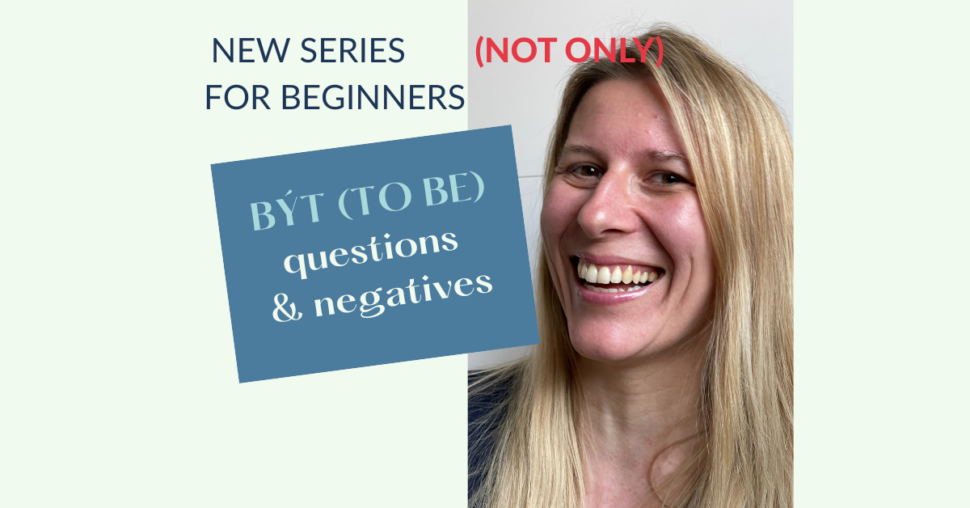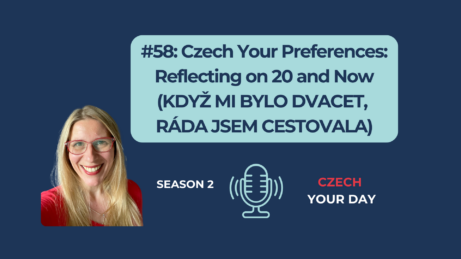Sloveso BÝT – Verb TO BE (questions & negatives)

Previous article showed us how to create the forms of the Czech verb BÝT not only in Standard Czech (the version you learn in textbooks), but also the version we usually use in Bohemia in less formal situations (Common Czech).
You can also take these quick quizzes to test yourself.
Today, we’ll have a look at how to create questions and negatives with the verb BÝT.
OTÁZKY – QUESTIONS
How to create a question in Czech with the verb to be?
Am I…? = Jsem…?
Are you…? (singular) = Jsi…?
Is he/Is she/Is it…? = Je…?
Are we…? = Jsme…?
Are you…? (plural) = Jste…?
Are they…? = Jsou…?
As you can see, we don’t normally use the personal pronouns (já/on/vy…) in questions. The form of the verb is already telling us whether it’s we (Jsme…?) or you (Jsi – singular, Jste – plural – …?).
Let’s have a look at more examples:
Jsi z České republiky? (= Are you from the Czech Republic? – singular, tykání)
– Ano, jsem. (= Yes, I am.)
Jste z České republiky? (= Are you from the Czech Republic? – plural, vykání)
– Ano, jsem. (= Yes, I am.)
or
– Ano, jsme. (= Yes, we are) – if we are asking a group of people
Je z Prahy? (= Is he/she from Prague?)
Je šťastná. (= Is she happy?)
Je šťastný. (= Is he happy?)
Jsou teď na dovolené? (= Are they on holiday right now?)
ZÁPOR – NEGATIVES
How do we create the negative forms? In general, it is pretty easy: you just add NE in front of the verb (it is written together as 1 word).
WATCH OUT! There is an exception with the verb BÝT in the 3rd person singular:
(já) nejsem
(ty) nejsi
(on) NENÍ
(ona) NENÍ
(ono) NENÍ
(my) nejsme
(vy) nejste
(oni) nejsou
Let’s practise:
Jsi teď v práci? (= Are you at work now?)
– Ne, nejsem. (= No, I’m not.)
Je to Jana? (= Is it Jana?)
– Ne, není. (= No, she’s not.)
Jsou u doktora/u doktorky? (= Are they at the doctor – male/female?)
– Ne, nejsou. (= No, they aren’t.)
If you want to practise some more, you can test yourself here.
Or you can watch videos on my YouTube channel. I tell simplified stories in Czech which help learners not only with their listening skills, but also with their pronunciation (we use a very effective method which is called „Shadowing“). Stories also help building your vocabulary in Czech as well as strengthening your Czech grammar. There are different levels. If you are a total beginner, choose level 0.








